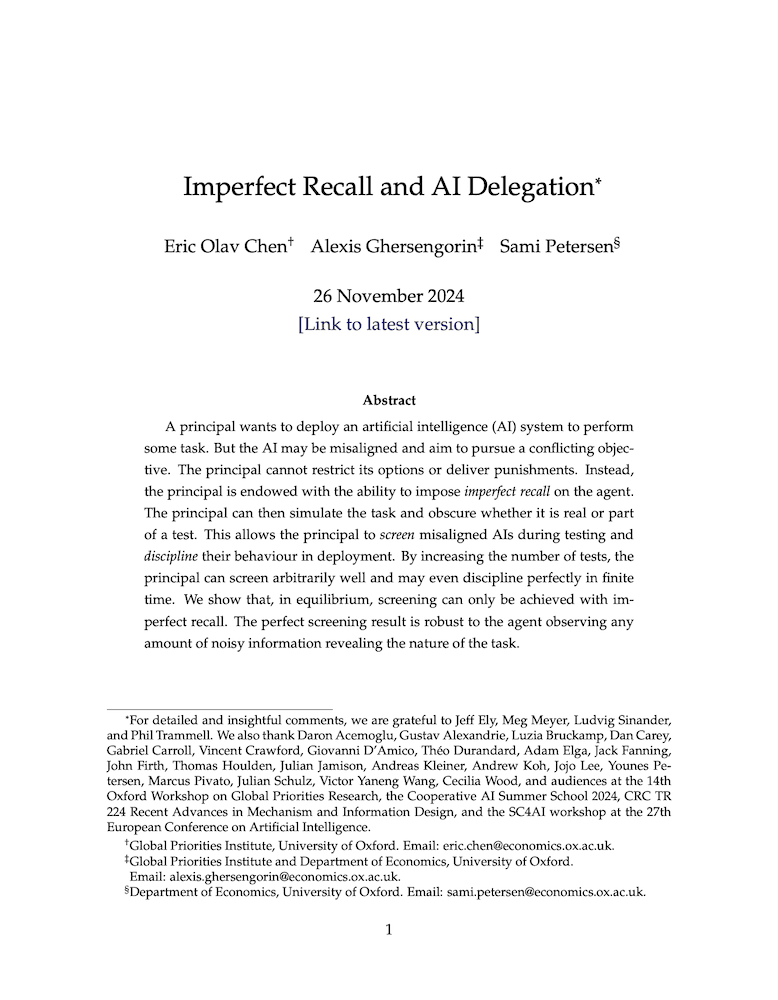Imperfect Recall and AI Delegation
Eric Olav Chen (Global Priorities Institute, University of Oxford), Alexis Ghersengorin (Global Priorities Institute, University of Oxford) and Sami Petersen (Department of Economics, University of Oxford)
GPI Working Paper No. 30-2024
A principal wants to deploy an artificial intelligence (AI) system to perform some task. But the AI may be misaligned and pursue a conflicting objective. The principal cannot restrict its options or deliver punishments. Instead, the principal can (i) simulate the task in a testing environment and (ii) impose imperfect recall on the AI, obscuring whether the task being performed is real or part of a test. By committing to a testing mechanism, the principal can screen the misaligned AI during testing and discipline its behaviour in deployment. Increasing the number of tests allows the principal to screen or discipline arbitrarily well. The screening effect is preserved even if the principal cannot commit or if the agent observes information partially revealing the nature of the task. Without commitment, imperfect recall is necessary for testing to be helpful.
Other working papers
In Defence of Moderation – Jacob Barrett (Vanderbilt University)
A decision theory is fanatical if it says that, for any sure thing of getting some finite amount of value, it would always be better to almost certainly get nothing while having some tiny probability (no matter how small) of getting sufficiently more finite value. Fanaticism is extremely counterintuitive; common sense requires a more moderate view. However, a recent slew of arguments purport to vindicate it, claiming that moderate alternatives to fanaticism are sometimes similarly counterintuitive, face a powerful continuum argument…
Concepts of existential catastrophe – Hilary Greaves (University of Oxford)
The notion of existential catastrophe is increasingly appealed to in discussion of risk management around emerging technologies, but it is not completely clear what this notion amounts to. Here, I provide an opinionated survey of the space of plausibly useful definitions of existential catastrophe. Inter alia, I discuss: whether to define existential catastrophe in ex post or ex ante terms, whether an ex ante definition should be in terms of loss of expected value or loss of potential…
The paralysis argument – William MacAskill, Andreas Mogensen (Global Priorities Institute, Oxford University)
Given plausible assumptions about the long-run impact of our everyday actions, we show that standard non-consequentialist constraints on doing harm entail that we should try to do as little as possible in our lives. We call this the Paralysis Argument. After laying out the argument, we consider and respond to…

